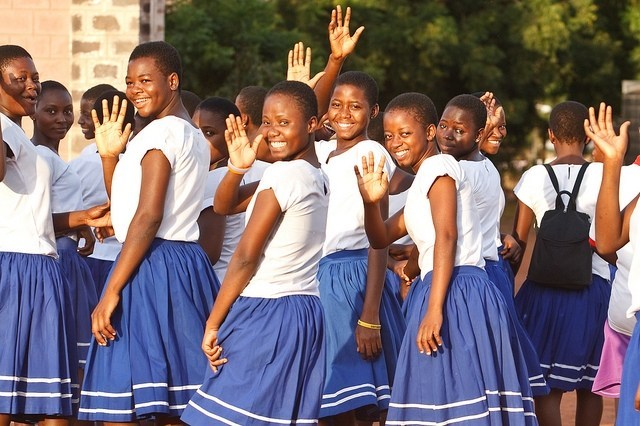The Ghana Education Service (GES) has recently instituted a nationwide ban on skin bleaching among students in all Second Cycle institutions in an effort to maintain discipline and foster a positive learning environment.
This instruction is a part of the recently adopted harmonized Code of Conduct for pre-tertiary students by the Ghana Education Service Council.
The problem is specifically addressed in the code section “Improper Dressing,” which reads, “Bleaching of the skin by a student shall not be allowed.” It is believed that the action is an attempt to dissuade students from engaging in unhealthy beauty practices and to encourage a positive body image.
The rules, however, cover a number of areas related to student behavior and appearance in addition to the prohibition against skin bleaching. It is mandatory for students to wear well-groomed clothes and shoes at all times.
The code also specifies guidelines for wearing accessories like bracelets, necklaces, caps, braces, and even eyewear. Changes to school uniforms or attire are strictly forbidden, and spectacles are only permitted with a valid medical prescription.
“Students shall not wear chains, bangles, caps, braces. Wearing of spectacles shall be with medical presentation. No alterations to school uniforms or dress shall be allowed. Unprescribed attire found in the possession of a student is an offence attire is an offence. Using unprescribed attire by a student is an offence,” the Code of Conduct stipulates.
The guidelines also cover personal grooming, stressing the value of keeping a respectable haircut as specified by school administrators. Hair should be modest, clean, and well-groomed, with a focus on staying away from bold colors and styles. Male students are supposed to have a clean-shaven beard and a well-groomed hairstyle.
“Students should have a decent haircut as prescribed by the school authorities. Hair should be clean, neat, and modest, and avoid extremes in styles and colour. Men’s hair should be neatly struck and beard clean shaven,” states the code.
The guidelines for sanctions stipulate that the offending party will have to face a disciplinary committee, sign a bond, and have bleaching cream and other prescribed items confiscated. Repercussions for inappropriate attire include two weeks of internal suspension, manual labor, demotion of prefects, counseling, and shaving of beards or sideburns under a housemaster’s supervision.
The harmonized Code of Conduct for the GES is a reference guide that aims to uphold general rules and directives while promoting and maintaining discipline at the pre-tertiary level of education. This action is a part of a larger effort to establish order and consistency in the classroom, highlighting the importance of proper grooming and appearance standards in creating a welcoming environment for learning.
GES prohibits skin bleaching in SHSs in a new code of conduct#UTVNews pic.twitter.com/E2BFKpxhU3
— UTV Ghana (@utvghana) January 10, 2024

